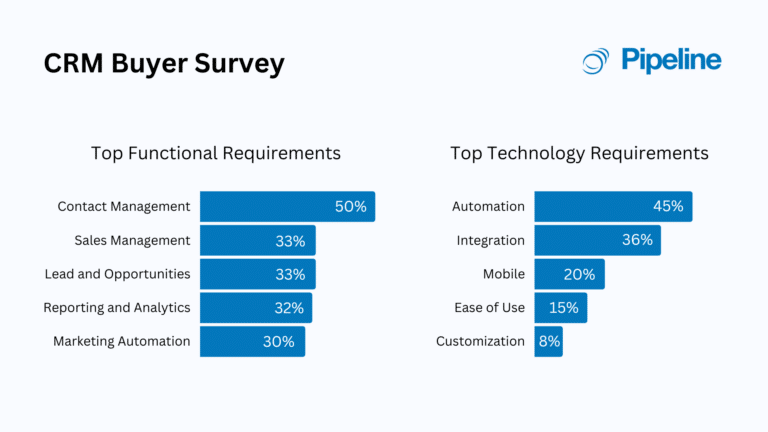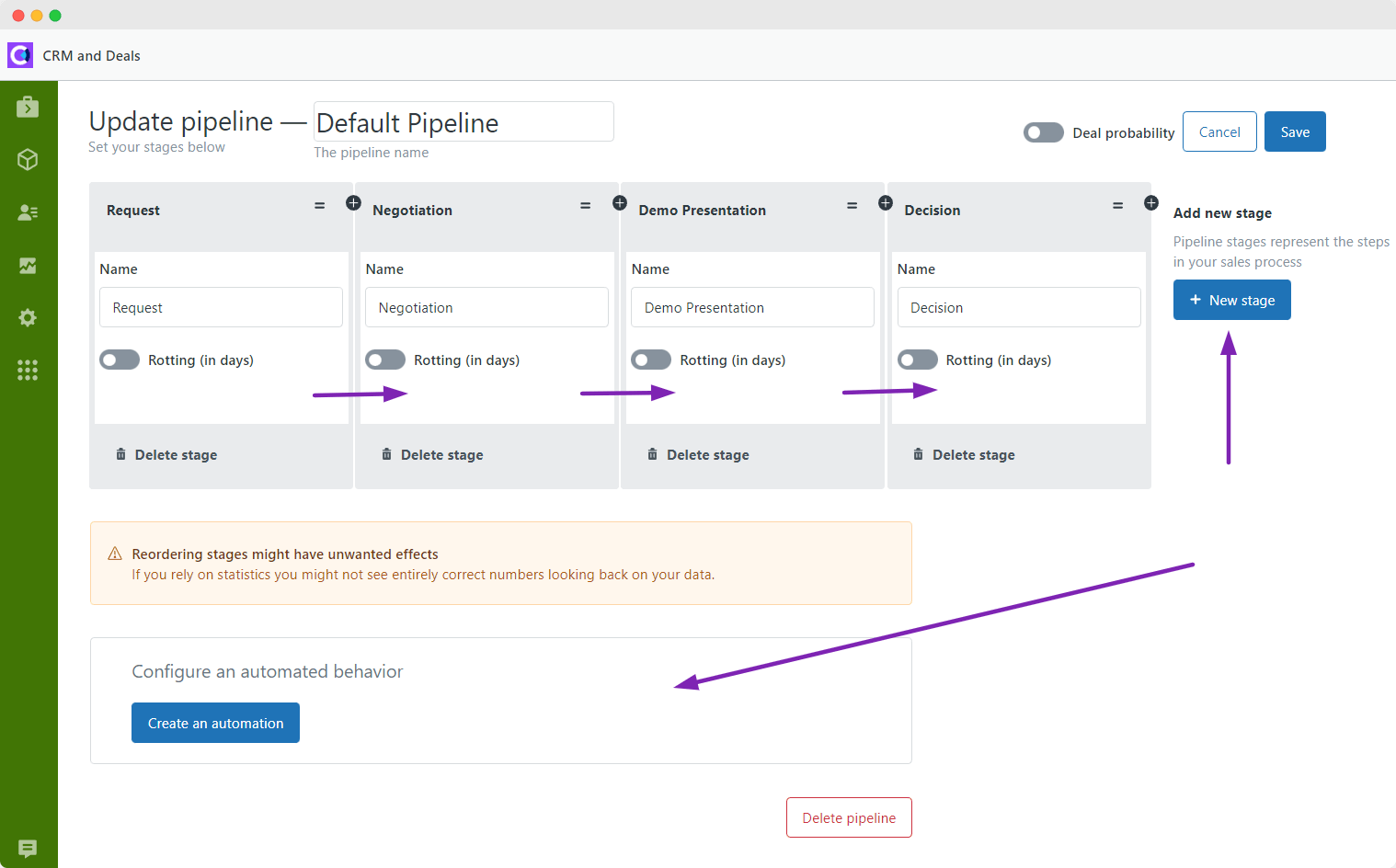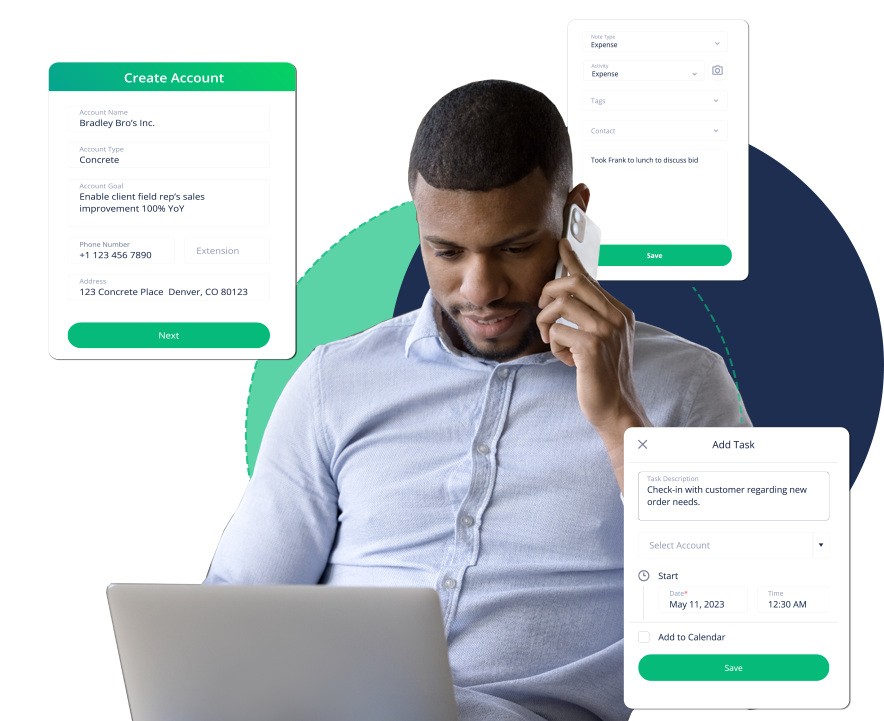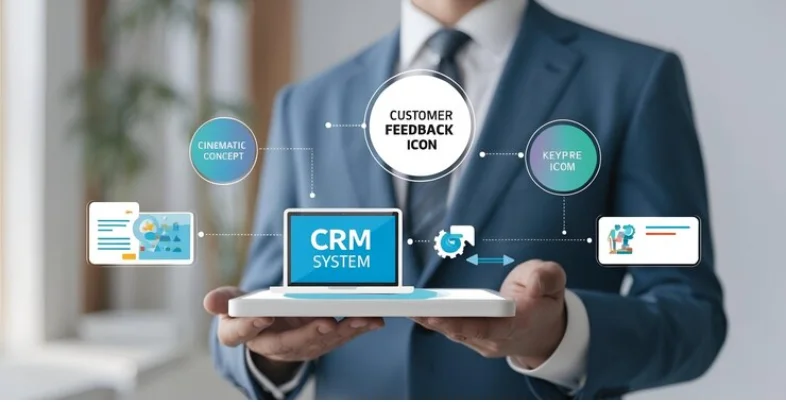Spice Up Your Service: The Best CRM Systems for Small Restaurants in 2024
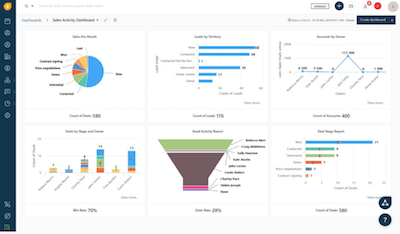
Running a small restaurant is a whirlwind of activity. From managing inventory and staff to taking orders and keeping customers happy, you’re constantly juggling multiple responsibilities. In this fast-paced environment, it’s easy for things to slip through the cracks. That’s where a Customer Relationship Management (CRM) system comes in. It’s more than just a fancy piece of software; it’s your secret ingredient for building lasting customer relationships, boosting efficiency, and ultimately, increasing your bottom line. In this comprehensive guide, we’ll dive deep into the best CRM systems tailored specifically for small restaurants, exploring their features, benefits, and how they can transform your business.
Why Does Your Small Restaurant Need a CRM?
You might be thinking, “My restaurant is small; do I really need a CRM?” The answer is a resounding yes! In today’s competitive landscape, customer loyalty is more valuable than ever. A CRM helps you cultivate that loyalty by:
- Centralizing Customer Data: No more scattered spreadsheets or sticky notes! A CRM stores all your customer information in one place, including contact details, order history, preferences, and more.
- Personalizing Customer Interactions: Armed with customer data, you can tailor your marketing efforts, offers, and service to individual preferences. This makes customers feel valued and understood.
- Improving Efficiency: Automate repetitive tasks, such as sending out email newsletters or managing reservations, freeing up your staff to focus on providing excellent service.
- Boosting Sales and Revenue: By understanding your customers’ needs and preferences, you can create targeted marketing campaigns that drive sales and increase revenue.
- Enhancing Customer Satisfaction: A CRM allows you to provide a more personalized and attentive experience, leading to happier customers and positive reviews.
In essence, a CRM is an investment in your restaurant’s future. It’s a tool that empowers you to build stronger relationships with your customers, streamline your operations, and ultimately, thrive in a competitive market.
Key Features to Look for in a CRM for Small Restaurants
Not all CRM systems are created equal. When choosing a CRM for your small restaurant, consider these essential features:
1. Contact Management
This is the foundation of any good CRM. It should allow you to:
- Store and organize customer contact information, including names, phone numbers, email addresses, and physical addresses.
- Segment customers based on various criteria, such as their order history, frequency of visits, or dietary restrictions.
- Easily search and filter your customer database.
2. Order Tracking and History
Keep track of what your customers are ordering and when. This feature helps you:
- View a complete history of each customer’s orders, including items ordered, dates, and amounts spent.
- Identify frequent customers and reward their loyalty.
- Analyze sales trends and optimize your menu accordingly.
3. Reservation Management
If your restaurant takes reservations, a CRM with reservation management capabilities is a must-have. It should allow you to:
- Manage and track reservations, including time, date, party size, and special requests.
- Send automated reservation confirmations and reminders.
- Reduce no-shows and maximize table turnover.
4. Marketing Automation
Automate your marketing efforts to save time and reach your customers more effectively. Look for a CRM that allows you to:
- Create and send email newsletters and promotional offers.
- Segment your customer base and send targeted messages based on their preferences.
- Track the performance of your marketing campaigns.
5. Loyalty Programs
Reward your loyal customers and encourage repeat business. A CRM with loyalty program features should allow you to:
- Create and manage loyalty programs, such as points-based rewards or tiered memberships.
- Track customer participation and reward redemptions.
- Personalize rewards based on customer preferences.
6. POS Integration
Integrate your CRM with your Point of Sale (POS) system to streamline your operations and gain a holistic view of your customer data. This integration allows you to:
- Automatically update customer information based on their POS transactions.
- Track customer spending and purchase history.
- Personalize marketing efforts based on POS data.
7. Reporting and Analytics
Gain valuable insights into your business performance with robust reporting and analytics features. Your CRM should allow you to:
- Track key metrics, such as customer acquisition cost, customer lifetime value, and average order value.
- Generate reports on sales, customer demographics, and marketing campaign performance.
- Identify areas for improvement and make data-driven decisions.
8. Mobile Accessibility
In today’s fast-paced world, it’s crucial to have access to your CRM on the go. Look for a CRM with a mobile app or a responsive web design that allows you to access your data and manage your business from your smartphone or tablet.
Top CRM Systems for Small Restaurants in 2024
Now that you know what to look for, let’s explore some of the best CRM systems specifically designed for small restaurants:
1. HubSpot CRM
HubSpot CRM is a popular choice for businesses of all sizes, including small restaurants. It offers a free version with powerful features, making it an attractive option for those on a budget. Key features include:
- Contact Management: Centralize all your customer information in one place.
- Deal Tracking: Manage your sales pipeline and track the progress of your deals.
- Email Marketing: Create and send email newsletters and promotional offers.
- Free Forever Plan: Get started without any upfront costs.
- Integration with Other Tools: Connect with your existing marketing and sales tools.
Pros: User-friendly interface, free version available, extensive features, strong integrations.
Cons: The free version has limitations on the number of contacts and emails you can send. Advanced features require paid plans.
2. Zoho CRM
Zoho CRM is another versatile CRM system that caters to businesses of all sizes. It offers a range of features that are well-suited for small restaurants. Key features include:
- Contact Management: Organize and manage your customer contacts efficiently.
- Sales Automation: Automate your sales processes and save time.
- Workflow Automation: Automate repetitive tasks and streamline your workflows.
- Customization: Customize the CRM to fit your specific needs.
- Affordable Pricing: Offers various pricing plans to suit different budgets.
Pros: Customizable, affordable pricing, good for sales automation, good customer support.
Cons: The interface can be overwhelming for new users, some features require a learning curve.
3. Pipedrive
Pipedrive is a sales-focused CRM that’s particularly well-suited for restaurants looking to streamline their sales process. Key features include:
- Visual Sales Pipeline: Visualize your sales process and track deals through different stages.
- Activity Tracking: Track your sales activities and stay organized.
- Email Integration: Integrate with your email provider for seamless communication.
- Sales Automation: Automate repetitive sales tasks.
- Easy to Use: Simple and intuitive interface.
Pros: User-friendly, excellent for managing sales pipelines, strong sales automation features.
Cons: Might not be as feature-rich as other CRM systems, limited marketing automation capabilities.
4. Copper
Copper is a CRM designed specifically for Google Workspace users, making it an excellent choice for restaurants that rely on Google’s suite of productivity tools. Key features include:
- Google Workspace Integration: Seamlessly integrates with Gmail, Google Calendar, and other Google apps.
- Contact Management: Easily manage your contacts within Google Workspace.
- Deal Tracking: Track your sales deals and stay organized.
- Sales Automation: Automate your sales processes.
- User-Friendly: Easy to learn and use.
Pros: Excellent integration with Google Workspace, user-friendly, good for small teams.
Cons: Can be expensive compared to other CRM systems, limited features for marketing automation.
5. Square for Restaurants
If you’re already using Square for your POS system, Square for Restaurants is a natural choice for your CRM needs. It seamlessly integrates with your POS and offers a range of features designed specifically for restaurants. Key features include:
- POS Integration: Seamlessly integrates with Square POS.
- Customer Profiles: Create detailed customer profiles with purchase history.
- Marketing Tools: Send targeted email and SMS marketing campaigns.
- Loyalty Program: Create and manage loyalty programs.
- Reporting and Analytics: Track key metrics and gain insights into your business performance.
Pros: Excellent integration with Square POS, easy to set up and use, affordable pricing.
Cons: Limited features compared to other CRM systems, primarily focused on POS functionality.
6. Upserve
Upserve is a restaurant-specific CRM that focuses on providing data-driven insights and helping restaurants improve their operations. Key features include:
- Restaurant-Focused Features: Designed specifically for the needs of restaurants.
- Detailed Analytics: Provides in-depth analytics on sales, customer behavior, and menu performance.
- Customer Relationship Management: Manage customer data and personalize interactions.
- Table Management: Manage your tables and reservations.
- Inventory Management: Track your inventory and reduce food waste.
Pros: Restaurant-specific features, robust analytics, good for data-driven decision-making.
Cons: Can be expensive, requires a learning curve to understand the advanced features.
7. Toast CRM
Toast CRM is another popular choice for restaurants, particularly those already using Toast POS. It offers a comprehensive suite of features designed to streamline operations and enhance customer relationships. Key features include:
- POS Integration: Seamlessly integrates with Toast POS.
- Customer Database: Store and manage customer data.
- Marketing Automation: Send targeted email and SMS marketing campaigns.
- Loyalty Programs: Create and manage loyalty programs.
- Online Ordering: Integrate with your online ordering system.
Pros: Excellent integration with Toast POS, comprehensive features, good for online ordering.
Cons: Can be expensive, primarily for Toast POS users.
How to Choose the Right CRM for Your Restaurant
Choosing the right CRM for your small restaurant is a crucial decision. Here’s a step-by-step guide to help you make the right choice:
1. Assess Your Needs
Before you start researching CRM systems, take some time to assess your specific needs. What are your goals? What are your pain points? What features are most important to you? Consider the following questions:
- What are your current customer management practices?
- What are your biggest challenges in managing customer relationships?
- What features are essential for your business? (e.g., reservation management, loyalty programs, marketing automation)
- What is your budget?
- Do you need POS integration?
2. Research and Compare CRM Systems
Once you know your needs, start researching different CRM systems. Compare their features, pricing, and reviews. Consider the following factors:
- Features: Does the CRM offer the features you need?
- Pricing: Is the pricing affordable and within your budget?
- Ease of Use: Is the CRM easy to use and navigate?
- Integrations: Does the CRM integrate with your existing tools, such as your POS system and email marketing platform?
- Customer Support: Does the CRM offer good customer support?
- Reviews: Read reviews from other small restaurants to get an idea of their experiences.
3. Request Demos and Free Trials
Most CRM systems offer demos and free trials. Take advantage of these opportunities to test the software and see if it’s a good fit for your business. During the demo or free trial, pay attention to:
- User Interface: Is the interface intuitive and easy to navigate?
- Features: Do the features meet your needs?
- Performance: Does the software run smoothly and efficiently?
- Customer Support: Is customer support responsive and helpful?
4. Consider Your POS Integration
If you want to integrate your CRM with your POS system, make sure the CRM you choose offers seamless integration with your POS. This integration is crucial for:
- Data Synchronization: Ensure that customer data is automatically synced between your CRM and POS.
- Reporting: Get a complete view of your customer data, including purchase history and spending habits.
- Personalization: Personalize your marketing efforts based on POS data.
5. Factor in Scalability
Choose a CRM that can scale with your business. As your restaurant grows, you’ll need a CRM that can handle more customers, data, and features. Consider a CRM that offers:
- Multiple User Accounts: Allow your staff to access the CRM.
- Increased Storage Capacity: Store more customer data.
- Advanced Features: Access advanced features as your needs evolve.
6. Prioritize User Training and Support
Make sure you and your staff are properly trained on how to use the CRM. The CRM provider should offer training resources and ongoing support to help you get the most out of the software. This will help ensure that you fully utilize the CRM’s capabilities and get the best return on your investment. Look for CRM providers that offer:
- Training Materials: Tutorials, guides, and documentation.
- Customer Support: Responsive and helpful customer support.
- Ongoing Support: Regular updates and new features.
7. Make a Decision and Implement
Once you’ve done your research, requested demos, and considered all the factors, it’s time to make a decision. Choose the CRM that best meets your needs and budget. Then, implement the CRM by:
- Importing your existing customer data.
- Training your staff on how to use the CRM.
- Integrating the CRM with your other tools.
- Starting to use the CRM to manage your customer relationships.
Tips for Successfully Using a CRM in Your Restaurant
Implementing a CRM is just the first step. Here are some tips for successfully using a CRM in your restaurant:
- Clean and Accurate Data: Ensure your customer data is accurate and up-to-date. Regularly review and update your data to avoid errors and ensure effective communication.
- Train Your Staff: Provide thorough training to your staff on how to use the CRM. This will help them understand how to access and utilize customer data and use the CRM’s features effectively.
- Use Segmentation: Segment your customer data to create targeted marketing campaigns. Group customers based on their preferences, purchase history, or demographics to personalize your messages.
- Personalize Your Communication: Use the customer data in your CRM to personalize your communication. Address customers by name, acknowledge their preferences, and offer relevant promotions.
- Automate Tasks: Automate repetitive tasks, such as sending out email newsletters or managing reservations. This will save time and free up your staff to focus on providing excellent service.
- Track Your Results: Track the performance of your marketing campaigns and other CRM activities. This will help you identify what’s working and what’s not, so you can optimize your efforts.
- Review and Adapt: Regularly review your CRM usage and make adjustments as needed. Stay up-to-date with the latest CRM features and best practices.
Conclusion: Savor the Benefits of a CRM
In the fast-paced world of the restaurant business, a CRM system is an invaluable tool for building strong customer relationships, streamlining operations, and boosting your bottom line. By choosing the right CRM and implementing it effectively, you can transform your small restaurant into a thriving business. Remember to prioritize your needs, research your options, and take advantage of the many benefits a CRM has to offer. So, take the plunge, embrace the power of a CRM, and watch your small restaurant flourish. Your customers, and your business, will thank you for it!

